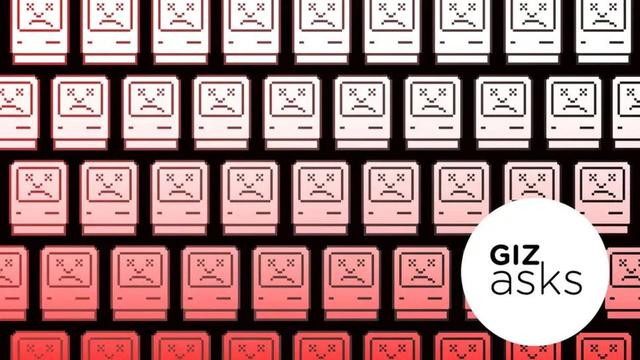The war is already out of sight
That company was hacked! Information about this company leaked! Since the news is frequently coming out, it seems that the senses are paralyzed and hacking seems to be one of everyday life, but behind the scenes, a large amount of money and personal information is lost, and in some cases even human life is lost. Sometimes. So which is the most dangerous hack in history? This time, Gizmodo of the United States asked an expert.
Most people who use the Internet on a daily basis may be more or less worried that the "worst scenario" will become a reality. That is, a ridiculous hack that would completely shut down the Internet, paralyze the infrastructure, and possibly even fire a few nuclear bombs. In a sense, it's because of malicious hackers that such a large-scale hack does not occur. That's because they have attacked governments and businesses many times over the last few decades, forcing the victims to address their vulnerabilities. However, there were also hacks that caused enormous damage, such as sabotage of important facilities and theft that could not be imagined in a world without the Internet. So which of those hacks was the most damaging? So which is the worst hack in history? about it. In this Giz Asks, I asked this question to multiple experts.
Thomas J. Holt
Chief Professor of Criminal Justice, Michigan State University. His main research extends to computer hacking and malware.
Alexander Klimburg
Author of The Darkening Web: the War for Cyberspace.
Major recent hacking and data leakage incidents
2010
Superworm "Stuxnet" invades Iran's nuclear facility. Approximately 20% of centrifuges will be destroyed, according to military and intelligence experts. The mainstream view is that the United States used this cyber weapon, but some experts believe that Israel cooperated in the development. Both countries denied involvement.

year 2012

A virus for Windows called "Shamoon" invades 35,000 workstations of a Saudi oil company. The virus's behavior is so destructive that it becomes famous. Viruses are called "wipers" and exist to erase all data on infected computers. There was growing concern that oil prices would rise internationally. Many security experts have pointed out the possibility of Iran's involvement.
2013, 2014
A PLA hacker used the certification of a subcontractor to break into the US Human Resources Department and was not found for a year. Approximately 22 million data are stolen, including 5 million fingerprint data and documents that determine who can access sensitive information.
2014
A group of hackers calling themselves the "Guardians of Peace" broke into Sony's computer network, stealing 100 terabytes of data, leaking confidential employee information, emails, and unreleased movies. Release a typical wiper. The main attack is believed to be North Korea, because Sony produced the comedy movie "The Interview" (starring Seth Rogen, James Franco) in which Kim Jong Un was assassinated.
2014
Yahoo admits in 2016 that the account information of one billion people was leaked. However, parent company Verizon announced in 2017 that it actually had 3 billion people.
2016
Prior to the Democratic National Convention, WikiLeaks and DCLeaks published an email recording the interactions between Presidential candidate Hillary Clinton and Democrats around her. A hacker calling himself "Guccifer 2.0" hacked the data and admitted that he had leaked various documents that hurt the Hillary camp to US journalists in the middle of the election. US intelligence claims that Guccifer is a fictional character created by Russian spies. The impact on the 2016 vote is still immeasurable, but the US government has repeatedly claimed that Moscow's goal was to win Donald Trump.
2017
Equifax, a consumer credit bureau, is considered to have one of the largest data leaks in US history. The personal information of at least 145 million people was stolen. Last year, the US Department of Justice charged four PLA members, but it is highly unlikely that a trial will actually take place. The case reaffirmed the lack of privacy awareness in US law.
2017
"WannaCry" ransomware attracted attention for its rapid spread to hospitals, public institutions, large corporations, etc. on a global scale. WannaCry's weapon is Eternal Blue, which was developed by the NSA and exploits a vulnerability leaked a year ago by the hacking group Shadow Brokers. British hacker Marcus Hutchins, who claims to be Malware Tech, discovers a malware-laden kill switch. This succeeded in significantly preventing the expansion of the initial model. The US government has pointed out North Korea's involvement.
2018
Aadhaar, India's biological information database, was invaded and personal information of almost all Indians was leaked. The leaked information includes a 12-digit personal identification number for 1.1 billion people. The ruling party in India has downplayed the scale of the incident and even said, "It's fake news." Security experts have found most of the leaked data in the black market.
Matthew Williams
Professor of Crime at Cardiff University, UK and Director of Hate Lab. He is also the author of The Science of Hate.
Nasir Memon
Founding Director of the Center for Cyber Security, New York University, and Deputy Chief of the Academic Affairs Division, Tandon Institute of Technology, New York University. His research specializes in digital forensic science, biometric information, data compression, network security, as well as security and human behavior.
